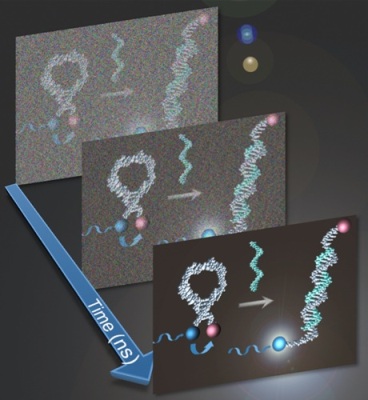Angel Martí, an Assistant Professor of Chemistry and Bioengineering and Kewei Huang, his graduate student in the Rice University have been involved in the study of fluorescent spectroscopy to detect the DNA structure of any molecule. The paper presented by the researchers has been presented in Analytical Chemistry, a journal of American Chemical Society.

Normally, spectroscopy applies a florescent technique to analyze minute chemical components and materials such as proteins and nanotubes. These components have the tendency to reflect a light energy that is induced by any light source such as laser. The spectrometer helps in the study of these tiny particles and helps biologists to study the structure of the cells, chemists to identify any disease, and engineers to design small machines. Professor Marti stated that the analysis has its shortcoming as the florescence is accompanied by a noise that mars the signal pattern emitted from the probes. The analysts therefore are not sure of the accuracy of the data produced by the snapshot from the standard spectrometer.
Professor Marti and fellow-researcher Kewei Huang concentrated on providing accurate data with regard to photoluminescent DNA probes. They have designed a molecular beam that easily gets attached to the DNA sequence in concern and then emits light. This time-based spectroscopy intensifies the study of the probes and has been found to be two-times effective than that of the standard fluorescence spectroscopy.
The Rice researchers apply a novel technique that allows for the creation of a movie, instead of a snapshot, to study the exact moment at which photoluminescence happens. They filter out the shadows caused by the accompanied noise and arrive at a clear picture of the right time at which the luminescence occurs. The new technique, when put to proper use, can improve the imaging capacity of diagnostic tools such as the magnetic resonance imaging tools that are useful in the medical field.
Disclaimer: The views expressed here are those of the author expressed in their private capacity and do not necessarily represent the views of AZoM.com Limited T/A AZoNetwork the owner and operator of this website. This disclaimer forms part of the Terms and conditions of use of this website.